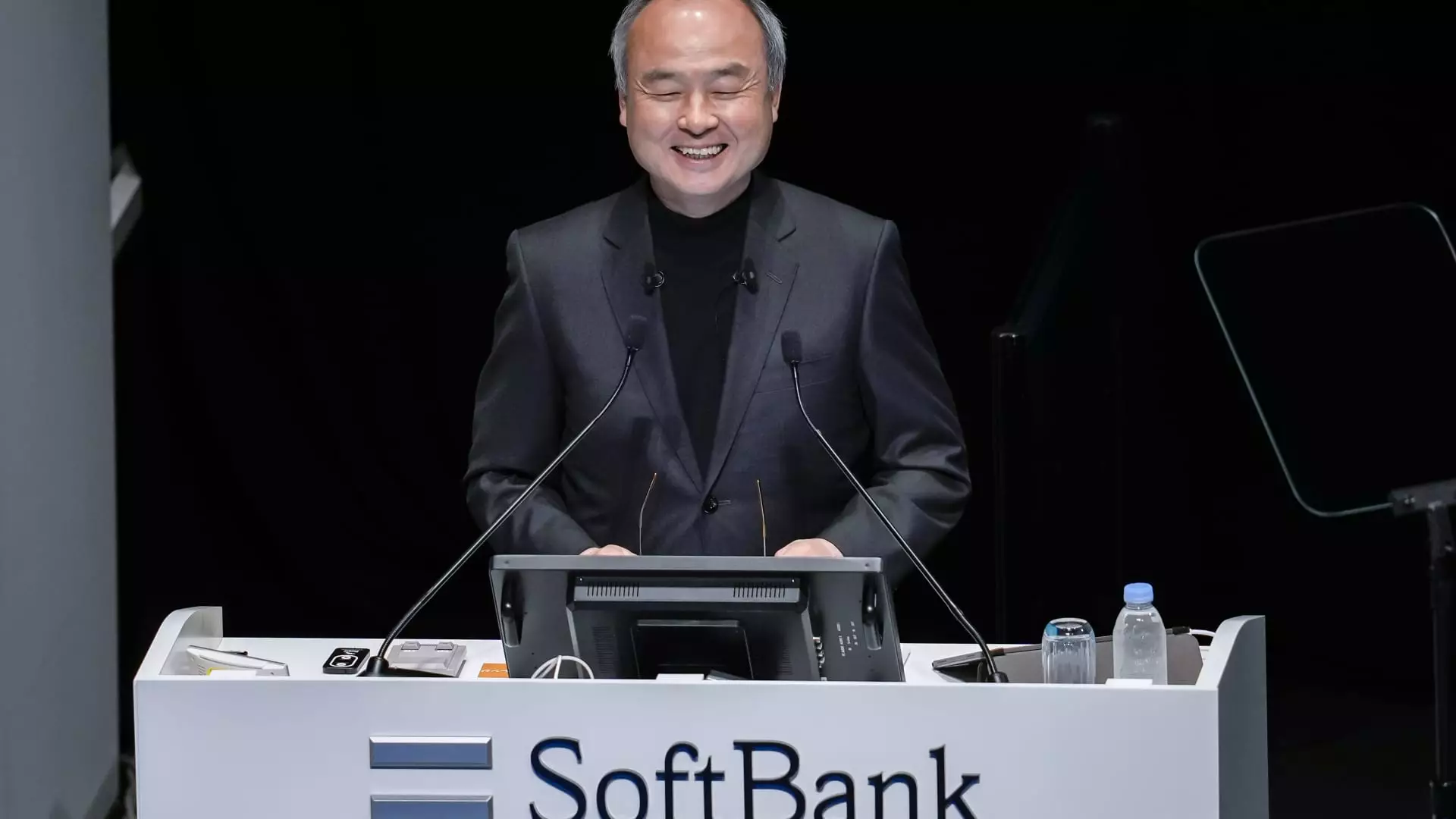SoftBank’s aggressive commitment to OpenAI is more than a high-stakes investment—it’s a declaration of intent to lead humanity into a transformational era dominated by what Masayoshi Son calls “artificial superintelligence” (ASI). Son’s vision goes far beyond incremental AI advances; he aims for SoftBank to become the primary platform driving intelligence that surpasses human capacity by a factor of 10,000. This is an audacious goal that most companies shy away from, but SoftBank’s readiness to allocate over $33 billion—even to an unlisted and unprofitable OpenAI—signifies a rare blend of ambition and conviction. Unlike typical venture capital moves grounded in short-term returns, Son’s approach reflects a deep strategic foresight rooted in the potential to redefine the global technological landscape.
The Complex Dance Between Innovation and Partnership
History reveals a missed opportunity when SoftBank originally had the chance to become OpenAI’s principal investor. Son admitted that in the pre-2019 period, he was prepared to commit $10 billion, backed by the Vision Fund’s resources. Yet OpenAI ultimately chose Microsoft, leveraging its vast computing infrastructure, brand authority, and supply chain advantages. This decision shaped the AI ecosystem as we know it today, with Microsoft controlling the exclusive cloud infrastructure for OpenAI’s products and APIs for several years.
However, cracks have started to show in this alliance. Microsoft’s refusal to embrace OpenAI’s restructuring toward a for-profit model—one that SoftBank actively supports—signals a potential realignment in partnerships. Son’s assertion that Altman might have been better off picking SoftBank initially is not just hindsight criticism but underscores SoftBank’s growing influence and appetite for leadership in the AI domain. This dynamic hints that industry alliances are fluid and that capabilities beyond raw capital—like strategic flexibility, vision alignment, and platform orchestration—are crucial in the AI era.
Strategic Synergies Fueling SoftBank’s AI Ambitions
Son’s vision is not isolated to software-centric AI; it’s bolstered by substantial moves into the hardware and infrastructure space. SoftBank’s acquisition of Arm, a dominant British semiconductor company, positions it uniquely to influence both the design and deployment of processing units critical for advanced AI computations. Additionally, the $6.5 billion purchase of Ampere signals a push into cloud chip design, essential for handling the enormous processing demands of ASI.
By integrating Arm’s semiconductor expertise with OpenAI’s software innovations, SoftBank is assembling a vertically integrated ecosystem that few global tech giants can match. There’s a clear understanding here: the future of artificial intelligence demands not just algorithms but groundbreaking hardware innovations capable of scaling intelligence exponentially.
Furthermore, the rumored $1 trillion U.S. industrial complex highlights SoftBank’s ambition to build a physical and economic infrastructure capable of sustaining advanced AI development at scale. Such an industrial behemoth could rival Silicon Valley’s ecosystem and provide the manufacturing, research, and innovation backbone for AI-powered technologies.
The Courage to Bet on Uncertainty
Investing billions in an unlisted, unprofitable company like OpenAI is a gamble few would dare to take in the current market environment. The technology landscape is littered with once-promising startups that failed to deliver, and the AI field is crowded, unpredictable, and subject to national security scrutiny. Yet SoftBank’s CEO embraces this uncertainty as a necessary risk to claim leadership in what will be the next generational technological leap.
Son’s posture challenges the conventional investment playbook that prioritizes immediate profitability or public market readiness. Instead, he stands firmly behind the conviction that the evolution of AI transcends standard business metrics. This willingness to prioritize long-term visionary impact over short-term earnings is a striking reminder that true innovation demands boldness not just in technology but in capital commitment and strategic patience.
Reimagining OpenAI’s Role in the Global AI Ecosystem
Ultimately, SoftBank’s deepening ties with OpenAI reflect a broader reimagining of how AI companies grow and compete on the global stage. The near future may see OpenAI evolve away from exclusivity deals toward more diverse partnerships—a transition that SoftBank seems keen to facilitate. Son’s vision of SoftBank as the “organizer of the industry in the artificial superintelligence era” suggests an intent to function less like a single-product company and more like an entire ecosystem conductor.
This role demands comprehensive integration across software, hardware, financing, and infrastructure—a tall order, yet SoftBank appears uniquely positioned to pull it off. This strategic orchestration could set a precedent for how AI leadership is structured moving forward: not as isolated innovations but as interconnected platforms shaping industries worldwide.
The stakes are monumental. SoftBank’s unwavering stance and continuous investment create ripples that challenge competitors’ strategies and hint at a future where AI’s exponential growth is managed—and mastered—through visionary industrial leadership rather than just incremental innovation.

